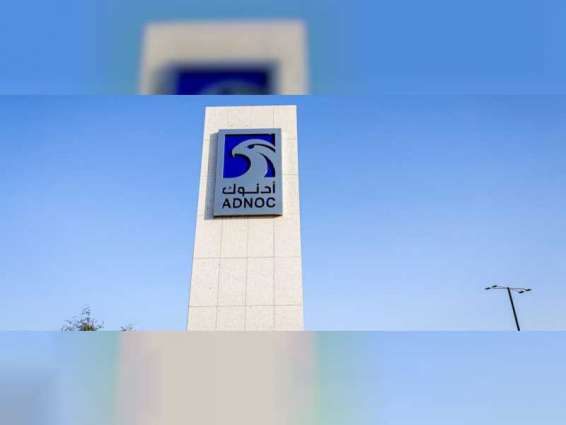ABU DHABI, (Pakistan Point News - 10th Nov, 2020) Abu Dhabi’s state-owned oil firm the Abu Dhabi National Oil Company, ADNOC, has looked to shrug off the COVID-19 pandemic to maintain a flurry of corporate activity, diversifying both its operations and revenue streams, said Petroleum Economist magazine.
Petroleum Economist, a London-based monthly publication that provides macro-economic and geopolitical analysis of the energy industry, stated that the company has a rich history of successfully outsourcing upstream exploration efforts and, over the past few years, has extended this approach to monetise infrastructure and facilities by divesting minority stakes in state assets. This has allowed the company to generate billions of Dollars at a time of oil price and demand uncertainty.
But it is not just about money for ADNOC: these collaborations with international specialists provide an important platform for knowledge transfer and support the UAE’s localisation efforts.
In late September, it announced the formation of two new trading subsidiaries: the ADNOC Global Trading joint venture with Italy’s Eni and Austria’s OMV, and the wholly owned ADNOC Trading. The former will focus on refined products while the latter’s remit will be crude.
The formation of the products market subsidiary is a follow-up to a 2019 agreement on trading collaboration that accompanied the acquisition by Eni of a 20pc stake and OMV of 15pc in the new ADNOC Refining arm. The two European firms’ combined investment of $5.8bn gave ADNOC Refining a valuation of $19.4bn.
Dr. Sultan bin Ahmed Al Jaber, Minister of Industry and Advanced Technology and ADNOC Group CEO, sees the new subsidiaries "stretching the margin from every barrel of oil that we produce, refine and trade".
Controlling the value chain is an important part of this strategy and ADNOC has added strategic assets accordingly. Its global storage capacity has been expanded through the acquisition of a 10pc stake in terminal owner VTTI and via agreements to utilise storage facilities in Japan and India, Petroleum Economist further writes.
And the company is expanding its shipping capabilities through its ADNOC Logistics and Services subsidiary. It formed a JV earlier this year with Chinese petrochemicals firm Wanhua Chemical and signed in mid-October a deal to acquire two very large crude carriers.
According to the magazine report, ADNOC has been in ‘buy’ mode while many others have been forced to retrench. The company has raised funds through the partial initial public offering of its retail unit, leasing out real estate and selling a minority stake in its drilling arm, but the highlight of this monetisation push has been the success of attracting investors into its pipeline subsidiaries, which has brought in more than $20bn.
This began in 2017, when the company completed a $3bn international bond issuance of its Adcop crude pipeline subsidiary, which moves oil from the central Habshan oilfield to the eastern emirate of Fujairah for export.
In 2019, US private equity giants BlackRock and KKR spent $4bn to acquire a 40pc stake in ADNOC Oil Pipelines, which holds the rights for 18 of ADNOC’s domestic crude oil and condensate lines. The pair were later joined by the Abu Dhabi’s ADRPBF pension fund (3pc) and Singapore’s sovereign wealth fund GIC (6pc), reducing ADNOC’s stake from its customary 60pc starting point to the 51pc minimum for retaining majority control.
The publication went on to say that the company’s attention has since shifted to gas, and in June this year it agreed to sell a collective 49pc stake in the newly formed ADNOC Gas Pipelines to a group consisting of Canada’s Brookfield Asset Management and the Ontario Teachers’ Pension Plan board, New York-based Global Infrastructure Partners, South Korea’s NH Investment and Securities, Italy’s Snam and Singapore’s GIC. For this, it fetched $10.1bn for the leasing rights to 38 gas pipelines.
The various leases will last for up to 25 years, and the temporary nature of these engagements is likely to have been a factor in ADNOC’s preparedness to reduce its stake below 60pc. It went even further in mid-October, when Abu Dhabi’s ADPF pension fund and state holding firm ADQ acquired 20pc in ADNOC Gas Pipelines HoldCo, the ADNOC subsidiary that holds its interest in ADNOC Gas Pipelines, for $2.1bn. In effect, this leaves ADNOC with an ownership stake of 40.8pc in the gas network.
"With NOCs and IOCs around the world looking at the company’s blueprint, few would question ADNOC’s pragmatism, and its flexible approach has already paid dividends its coffers filling while others face the prospect of axing projects or staff," Petroleum Economist concluded.




